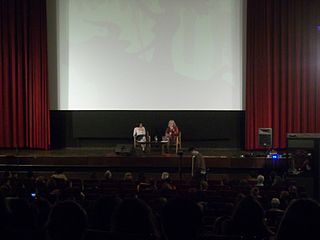A Quote by James Laver
Clothes are never a frivolity: they always mean something, and that something is to a large extent outside the control of our conscious minds.
Related Quotes
Never say that you can't do something, or that something seems impossible, or that something can't be done, no matter how discouraging or harrowing it may be; human beings are limited only by what we allow ourselves to be limited by: our own minds. We are each the masters of our own reality; when we become self-aware to this: absolutely anything in the world is possible
An entertainment is something which distracts us or diverts us from the routine of daily life. It makes us for the time being forget our cares and worries; it interrupts our conscious thoughts and habits, rests our nerves and minds, though it may incidentally exhaust our bodies. Art, on the other hand, though it may divert us from the normal routine of our existence, causes us in some way or other to become conscious of that existence.
Central to Jungian psychology is the concept of "individuation," the process whereby a person discovers and evolves his Self, as opposed to his ego. The ego is a persona, a mask created and demanded by everyday social interaction, and, as such, it constitutes the center of our conscious life, our understanding of ourselves through the eyes of others. The Self, on the other hand, is our true center, our awareness of ourselves without outside interference, and it is developed by bringing the conscious and unconscious parts of our minds into harmony.
Something is funny, most of all, because it's true, and because the velocity of insight into this truth exceeds our normal standards. Something is funny because it's outside our accepted boundary of decorum. Something is funny because it defies our expectations. Something is funny because it offers a temporary reprieve from the hardship of seeing the world as it actually is. Something is funny because it is able to suggest gently that even the worst of our circumstances and sins is subject to eventual mercy.
We think rightly or wrongly about prayer according to the conception we have in our minds of prayer. If we think of prayer as the breath in our lungs and the blood from our hearts, we think rightly. The blood flows ceaselessly, and breathing continues ceaselessly; we are not conscious of it, but it is always going on. We are not always conscious of Jesus keeping us in perfect joint with God, but if we are obeying Him, He always is.


































